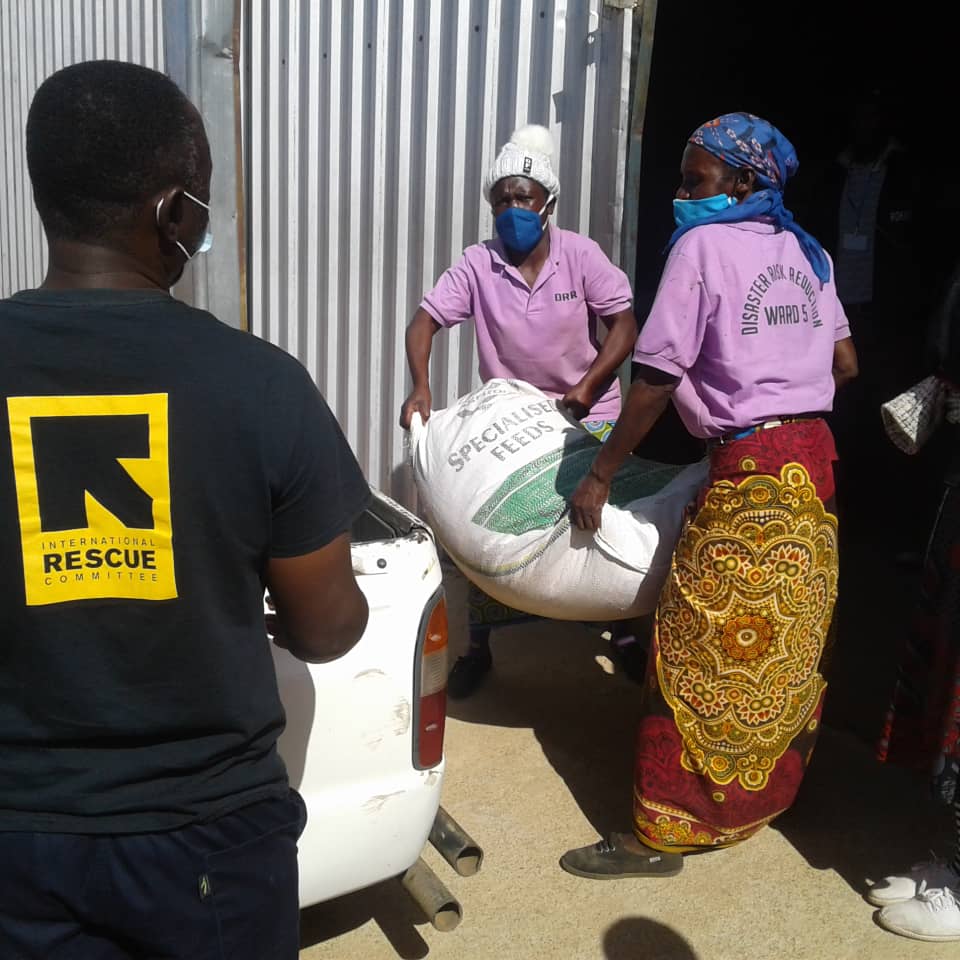By Anyway Yotamu
In Beitbridge District, 2 250 households are receiving supplementary subsidized livestock feed from the Program for Growth and Resilience (PROGRESS) under the Zimbabwe Resilience Building Fund (ZRBF) in the wake of the drought being experienced in the country.
The intervention is being implemented as part of adaptive programming to the resilience-building efforts through protecting development gains by the consortium.
The one-month supplementary livestock feed which is targeting 4 500 cattle in 14 Wards of the district, is expected to protect cattle that are targeted under the breed improvement efforts through artificial insemination (AI).
The consortium PROGRESS Team Leader Sylvia Khumalo said: “This component is focusing on the provision of supplementary livestock feed to protect cattle targeted under the breed improvement efforts through artificial insemination (AI) to ensure that they maintain a desirable body score condition which is crucial in preventing abortions especially in the 3rd trimester where nutritional requirements for maintenance and production increase susceptibility to disease and supporting lactation.
“At least 2250 households will directly benefit from the interventions being implemented with an estimated 9 000 bags being issued to 2 animals per farmer each receiving 2 bags for a month. The provision of livestock feed will reduce the burden on women who may need to travel for long distances to pastures whilst taking care of their livestock,” she said.
“Efforts will be made to ensure that the feed is delivered as close as is practically possible where it will be easier for the women to transport to their homes.
“The project is helping to build resilience as the farmers get the stock feed. They are also contributing funds equivalent to Fifty Rands to the Disaster Risk Reduction (DRR) committee, a revolving fund for the maintenance of livestock support facilities in the districts and continued availability of stock feed,” she added.
The intervention falls under the project’s ‘crisis modifier’ which is designed to enable early action and rapid response to new humanitarian needs that are manifested in different project areas.
The ZRBF Crisis Modifier is linked to early warning systems such that there is early processing and releasing of early action funds when shocks and stresses are experienced.
Beitbridge District Principal Administrative officer Jahson Mugodzwa said, “A special thanks to the PROGRESS team for the relief and farmers have also been taught how to produce feed on their own. For this season we have relief though it’s short term. As we progress we hope to shape up long-term projects. The challenge in Beitbridge is usually there is nothing in terms of grazing pastures hence the need for more stock feed.
“There are some mills like the one at Kwalu which if raw materials are available, farmers can produce locally and flood the local market thereby reducing prices to the reach of many farmers including women and youth.”
“Water availability remains a challenge hence the need for the farmers to continue buying the subsidized feed up to the onset of the rain season,” said Mugodzwa.
The PROGRESS consortium is composed of IRC, CESVI, BIOHUB Trust, MRI (Matopos Research Institute), CIMMYT (International Maize and Wheat Improvement Centre) that is working in collaboration with the AGRITEX Department and the District Veterinary Services, under the Ministry of Agriculture.
Other projects being implemented by PROGRESS under the ZRBF include Non-Timber Forestry Products, Mechanization, Youth empowerment, high-value cash cropping, among others.
The Zimbabwe Resilience Building Fund is supported by the Ministry of Lands, Agriculture, Water and Rural Resettlement (MLAWRR), The European Union (EU), The Embassy of Sweden, The United Nations Development Programme (UNDP), and the Department for International Development (DFID).






